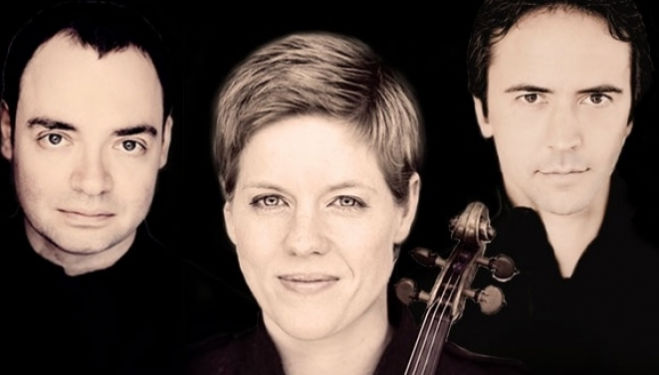
Four centuries ago, the world lost the greatest playwright in Western history: William Shakespeare. To mark the occasion, the London Symphony Orchestra has programmed three concerts to mark the great writer. They will perform the works of seven strikingly diverse composers, many of them directly inspired by the Bard. This promises to be both a celebration of the great man and a veritable cornucopia of classical masterworks – a sure highpoint of the Barbican Centre’s 2015/16 season.
For the first concert on 16 Feb, the LSO will be joined by John Eliot Gardiner and the Monteverdi Choir for an evening of Mendelssohn. It will commence with the great romantic’s Symphony No. 1, a first-rate work all the more remarkable because it was composed when he was only 15. Its exuberance will be followed by the incidental music for A Midsummer Night’s Dream. One of the most extraordinary interpretations of Shakespeare’s oeuvre, it matches the play’s fantastical energy. Watch out for the Wedding March, used the world over.
The remaining two concerts see conductor Gianandrea Noseda, formerly of the BBC Philharmonic, take the reigns. First, on the 25 Feb, he will present four diverse romantic pieces. There’s Smetana’s Richard III, a thrilling tone poem that presents the tyrant’s rise and fall, and Liszt’s fiendishly difficult Piano Concerto No. 2, played by pianist Simon Trpceski, a London favourite. Then there’s Tchaikovsky’s masterly Romeo and Juliet Fantasy Overture, before the night draws to a close with Richard Strauss’ furious Macbeth.
Finally, On 25 Feb, Shostakovich’s final concerto will be led by Janine Jansen’s violin before the season concludes with a work of enormous scale. Berlioz’s Romeo and Juliet Suite, affectively a choral symphony, took orchestral music to a new magnitude. It’s a fitting way to close a celebration of the richest of writers.
For the first concert on 16 Feb, the LSO will be joined by John Eliot Gardiner and the Monteverdi Choir for an evening of Mendelssohn. It will commence with the great romantic’s Symphony No. 1, a first-rate work all the more remarkable because it was composed when he was only 15. Its exuberance will be followed by the incidental music for A Midsummer Night’s Dream. One of the most extraordinary interpretations of Shakespeare’s oeuvre, it matches the play’s fantastical energy. Watch out for the Wedding March, used the world over.
The remaining two concerts see conductor Gianandrea Noseda, formerly of the BBC Philharmonic, take the reigns. First, on the 25 Feb, he will present four diverse romantic pieces. There’s Smetana’s Richard III, a thrilling tone poem that presents the tyrant’s rise and fall, and Liszt’s fiendishly difficult Piano Concerto No. 2, played by pianist Simon Trpceski, a London favourite. Then there’s Tchaikovsky’s masterly Romeo and Juliet Fantasy Overture, before the night draws to a close with Richard Strauss’ furious Macbeth.
Finally, On 25 Feb, Shostakovich’s final concerto will be led by Janine Jansen’s violin before the season concludes with a work of enormous scale. Berlioz’s Romeo and Juliet Suite, affectively a choral symphony, took orchestral music to a new magnitude. It’s a fitting way to close a celebration of the richest of writers.
| What | Shakespeare at 400, Barbican Centre |
| Where | Barbican Centre, Silk Street, London, EC2Y 8DS | MAP |
| Nearest tube | Barbican (underground) |
| When |
On 16 Feb 16, 7:30 PM – 9:45 PM On 25 Feb 16, 7:30 PM – 9:45 PM On 28 Feb 16, 7:30 PM – 9:45 PM |
| Price | £13-43 |
| Website | Click here to book via the LSO website |




